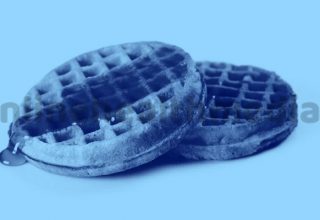Navigating the Moyamoya Disease Diet Tips and Recommendations.
Note: The information in this article is not intended to substitute professional medical advice, diagnosis or treatment. All images and text presented are for general information purposes only. Please consult your healthcare professional for proper diagnosis.
Maintaining a healthy diet is essential for overall well-being, especially for individuals living with Moyamoya disease.
While there is no specific Moyamoya disease diet, adopting healthy eating habits can help manage risk factors such as high blood pressure, cholesterol levels, and blood sugar levels, which are important considerations for individuals with Moyamoya disease.
A rare blood vessel disorder, this condition is known to block the carotid artery in the skull owing to a blockage. The blood flow to the brain heavily relies on the carotid artery.
When it becomes blocked, it can lead to the development of smaller vessels that can resume the blood supply.
Moyamoya disease can naturally cause issues such as transient ischemic heart attack which is also known as ministroke.
In this article, we will explore dietary recommendations and strategies to support optimal health for individuals with Moyamoya disease.
Signs of Moyamoya disease

Before we take a look at the moyamoya disease diet, let’s start here. The symptoms of moyamoya disease can vary from those seen for the different brain tumor types. Thus, following are the signs that can help you differentiate between the two:
- Headache
- Seizures
- Vision problems
- Cognitive delays
- Trouble speaking or understanding
- Delay in cognition or development
- Involuntary movements
Moyamoya Disease Diet: All Its Components You Should Pay Attention To!
The management of any condition requires non-pharmacological interventions as well. These are treatment options that are different from the typical medications, moyamoya surgery or therapy.
The recommendation of moyamoya disease diet is a lifestyle change that ensures that there is no negative alteration in the body due to the condition.
As this is not a condition that directly benefits from a dietary change, there are different elements that help it.
The following list presents all the components of the condition:
Balanced Nutrition

A balanced diet rich in fruits, vegetables, whole grains, lean proteins, and healthy fats forms the foundation of a healthy lifestyle for individuals with Moyamoya disease. Aim to incorporate a variety of nutrient-dense foods into your meals to ensure you’re getting:
- Essential vitamins,
- Minerals, and
- Antioxidants that support brain health and overall cardiovascular function.
Heart-Healthy Foods

Focusing on heart-healthy foods can help manage risk factors associated with Moyamoya disease, such as high blood pressure and cholesterol levels. In moyamoya disease diet, choose foods:
- Low in saturated and trans fats, such as lean meats, fish, nuts, seeds, and avocado.
- Incorporate sources of omega-3 fatty acids, such as fatty fish (salmon, mackerel, sardines), flaxseeds, and walnuts, which have anti-inflammatory properties and support cardiovascular health.
Limit Sodium Intake

Excess sodium in the diet can contribute to high blood pressure, increasing the risk of stroke and other cardiovascular complications in individuals with Moyamoya disease.
Aim to reduce sodium intake by choosing fresh, minimally processed foods and avoiding highly processed and packaged foods that are high in salt.
Use herbs, spices, and other flavorings to enhance the taste of your meals without relying on salt.
Hydration

- Staying well-hydrated is important for maintaining optimal blood flow and hydration levels, which can help reduce the risk of dehydration and its associated complications.
- Aim to drink plenty of water throughout the day and
- Limit consumption of sugary beverages and caffeinated drinks, which can contribute to dehydration and fluctuations in blood sugar levels.
Moderate Alcohol Consumption

While moderate alcohol consumption may have some cardiovascular benefits, excessive alcohol intake can increase the risk of high blood pressure, stroke, and other health problems.
If you choose to drink alcohol, do so in moderation and be mindful of your limits.
In addition, avoid binge drinking and seek guidance from your healthcare provider if you have concerns about alcohol use and its potential effects on your health.
Individualized Approach

It’s important to recognize that dietary needs and preferences may vary among individuals with Moyamoya disease.
Consider consulting a registered dietitian or healthcare provider to develop a personalized nutrition plan that considers your health goals, medical history, and dietary preferences.
They can provide tailored recommendations and support to help you make informed choices and optimize your nutritional intake.
Mindful Eating Practices

- Practicing mindful eating can help individuals with Moyamoya disease develop a healthier relationship with food and make more conscious choices about their dietary habits.
- Pay attention to hunger and satiety cues, eat slowly, and savor each bite to enhance enjoyment and satisfaction from meals.
- Avoid distractions such as screens or multitasking while eating, as this can lead to mindless overeating and poor digestion.
- Cultivate awareness of portion sizes and choose smaller, more frequent meals. snacks to maintain steady energy levels throughout the day.
Stress Management and Relaxation Techniques

Chronic stress can negatively impact cardiovascular health and exacerbate symptoms of Moyamoya disease.
Incorporating stress management techniques such as deep breathing exercises, meditation, mindfulness, and
Progressive muscle relaxation can help reduce stress levels and promote relaxation.
Find activities that bring you joy and help you unwind, whether it’s spending time in nature, engaging in creative hobbies, or connecting with loved ones.
Prioritizing self-care and finding healthy outlets for stress will contribute to overall well-being and resilience in the face of health challenges.
Bonus: Additional Tips to Keep in Mind
The Importance of Regular Physical Activity
In addition to adopting a healthy diet, regular physical activity is an essential component of a holistic approach to managing Moyamoya disease.
Exercise has numerous benefits for cardiovascular health, including improving blood flow, reducing blood pressure, and maintaining a healthy weight.
Aim for at least 150 minutes (about 2 and a half hours) of moderate-intensity aerobic exercise or 75 minutes of vigorous-intensity aerobic exercise per week, as recommended by the American Heart Association. Activities such as:
- Walking,
- Cycling,
- Swimming, and
- Yoga can help improve cardiovascular fitness, strengthen muscles, and enhance overall well-being.
- Regular Monitoring and Follow-up
- As with any chronic condition, regular monitoring and follow-up with healthcare providers are essential for managing Moyamoya disease effectively.
- Keep track of your symptoms, medication regimen, and lifestyle habits, and communicate openly with your healthcare team about any concerns or changes in your health status.
- Schedule regular check-ups, imaging studies, and laboratory tests as recommended by your healthcare provider to monitor disease progression,
- Assess treatment efficacy, and
- Address any emerging issues promptly.
- Community Support and Education
Seeking support from others who understand the challenges of living with Moyamoya disease can provide invaluable emotional support, practical advice, and encouragement along your journey.
For instance:
- Joining support groups,
- participating in online forums, and
- Connecting with local advocacy organizations can help you feel less isolated and more empowered to manage your condition.
Additionally, staying informed about recent advances in research, treatment options, and lifestyle strategies for Moyamoya disease can empower you to make informed decisions about your health and advocate for the support and resources you need.
Conclusion
While there is no specific Moyamoya disease diet, adopting a holistic approach to health that includes a balanced diet, regular physical activity, stress management, and regular monitoring is essential for managing the condition and optimizing overall well-being.
By focusing on healthy lifestyle habits, staying connected to a supportive community, and working closely with healthcare providers, individuals with Moyamoya disease can take proactive steps to enhance their quality of life and reduce the risk of complications.
Do you know other dietary modifications that can help in this condition? Let us know in the comments below.
Also read
- Top 10 Best Hair Cream For Men in 2021
- Top 10 Best Portable Oxygen Concentrator in 2024
- Top 10 Best Waist Trimmer Belt For Men And Women in 2024



